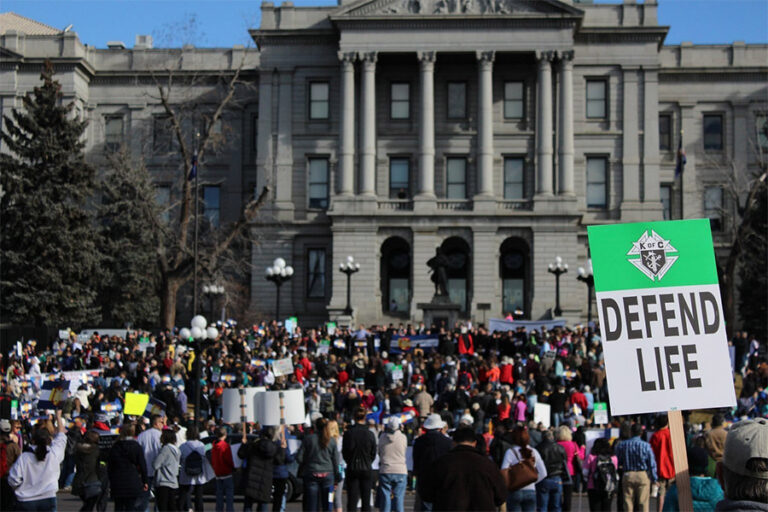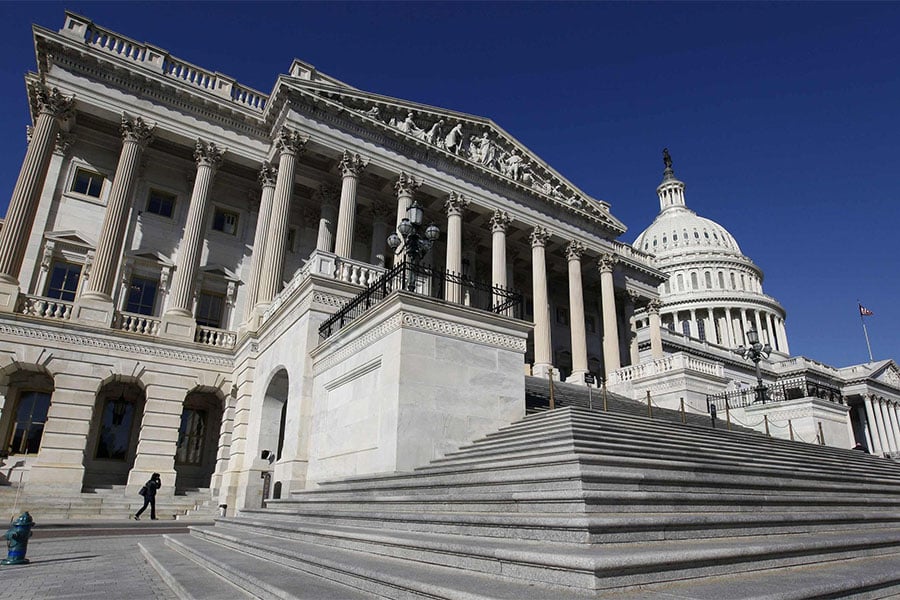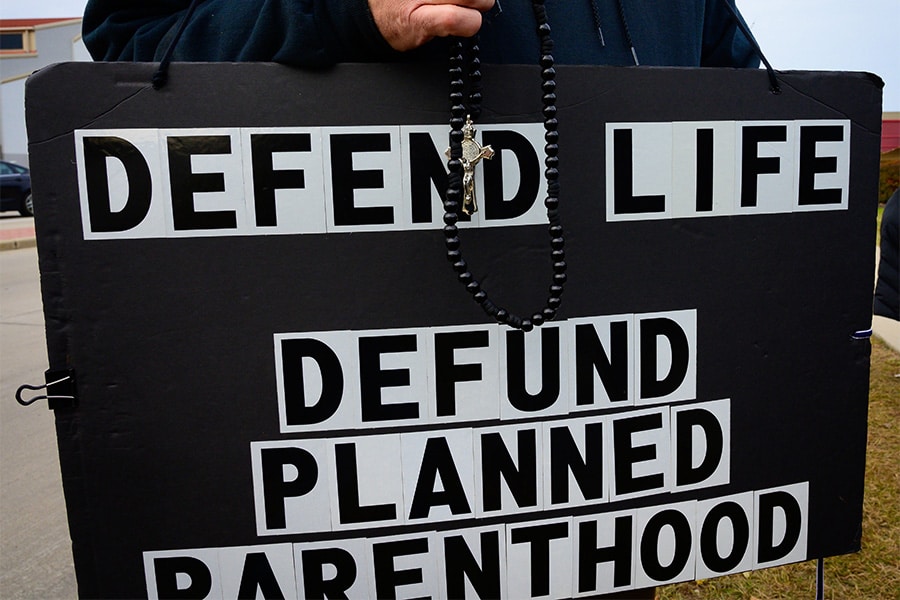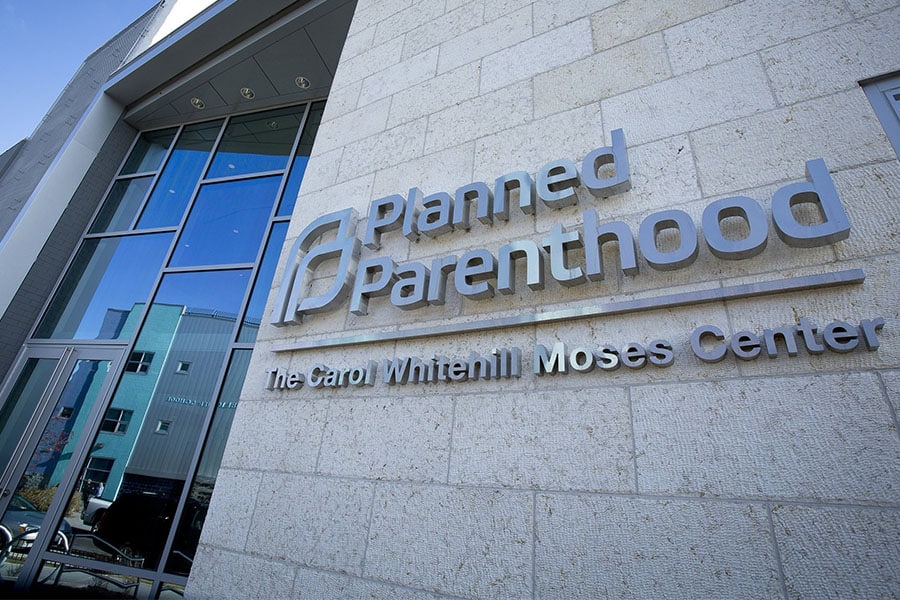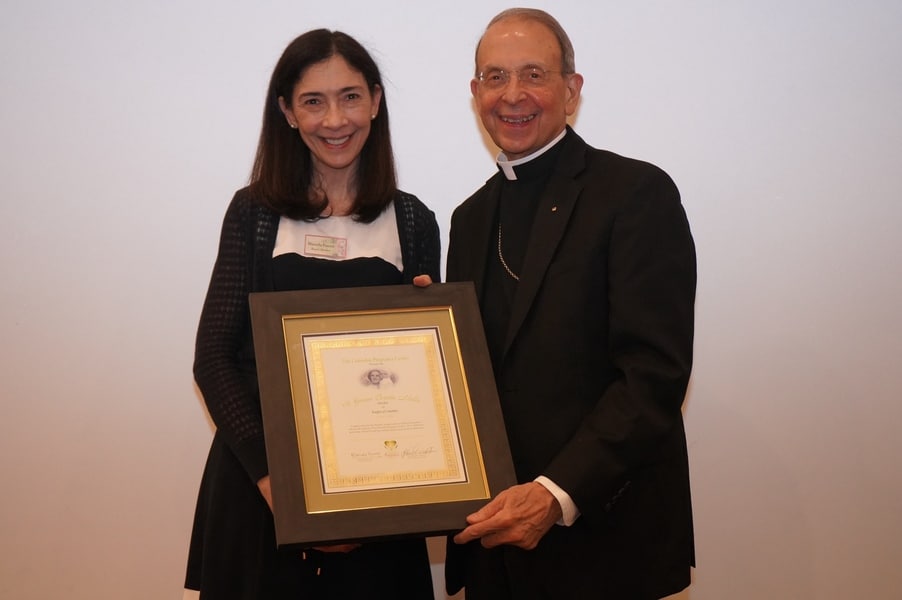WASHINGTON (OSV News) — After activists for legal abortion pushed back on some Republican presidential candidates’ criticism of some state abortion laws as being without limits, a prominent pro-life group cast those arguments as disingenuous and said some states actually do not limit the procedure in law.
After the U.S. Supreme Court’s June 2022 decision in Dobbs v. Jackson Women’s Health Organization struck down the high court’s nearly 50-year-old abortion precedent since Roe v. Wade, the group Susan B. Anthony Pro-Life America said it would seek for Republican presidential candidates to specifically back a federal 15-week gestational limit on abortion.
Only three of the top nine Republican presidential candidates specifically backed a 15-week federal gestational limit at their party’s first debate of the 2024 cycle: former Vice President Mike Pence, South Carolina Sen. Tim Scott and former Arkansas Gov. Asa Hutchinson.
Emily V. Osment, SBA vice president of communications, told OSV News that the Aug. 23 GOP presidential debate in Milwaukee featured a “fulsome discussion on pro-life issues.”
“That was really good to hear just some more clarity on where candidates stand,” Osment said. “There were candidates that were really bold and then there were some candidates that were shying away from talking about the issue. But it was good to have the discussion and the American people want to know where the candidate stands.”
During the debate, amid a conversation about abortion, Florida Gov. Ron DeSantis, who has not backed a clear federal limit, said that some states will choose to legislate the issue differently than others but that “we are not going to allow abortion all the way up until birth, and we will hold them accountable for their extremism.”
Sen. Scott said that “we cannot let states like California, New York and Illinois have abortions on demand up until the point of birth.”
Each of those three states permit abortion for any reason until viability, generally considered to be 24 weeks of pregnancy, but permit abortions beyond that point if there is a risk to a woman’s health.
In an apparent response to the debate, former White House press secretary and current MSNBC host Jen Psaki wrote on X, formerly Twitter, “No one supports abortion up until birth.” The DeSantis campaign responded with a five-minute video of clips of Democratic politicians saying they do not support abortion limits.
Planned Parenthood Action Fund, the lobbying arm of the nation’s largest abortion provider, wrote on the same platform, “Reminder: ‘Late-term abortion’ is a made up phrase used by anti-abortion politicians to confuse people and stigmatize abortion.” The group has itself used that term in the past, according to a search of its website by OSV News.
An SBA memo shared with OSV News said that laws seeking to protect abortion access generally fall under two categories. In one type, some implement no gestational limits on the procedure. In seven states — Alaska, Colorado, Maine, New Jersey, New Mexico, Oregon and Vermont — as well as the District of Columbia, abortions are legal with no gestational limits.
The second type of laws, the memo said, permits abortion until viability but allows abortions after viability if a woman’s physical or mental health were at risk. This is more akin to the abortion laws in Illinois, California and New York referenced by Scott during the debate. The SBA memo notes, however, that these exceptions can be broadly interpreted and they are “left to be defined by the abortionist who stands to profit.”
SBA also noted that 90% of OB-GYNs do not perform elective abortions.
The Women’s Health Protection Act, legislation supported by the White House, would prohibit restrictions on abortion prior to viability, setting a national standard like the laws in those states. But that legislation has failed in Congress despite multiple attempts to pass it.
Osment said that Psaki, as the press secretary for President Joe Biden, refused to name “a single limit that the president would support, or any boundary on abortion, and here she is now saying that which is categorically not true.”
“I mean, it’s as if they’re trying to tell us to not believe our own eyes when we have seven states, plus our nation’s capital, that allow abortion up to birth,” Osment said.
An overwhelming number of abortions take place in the U.S. within the first trimester. In 2020, 93% of abortions took place by 13 weeks, according to data from the Centers for Disease Control and Prevention, with about 1% performed at 21 weeks or more of gestation. While such late-term procedures are statistically rare, laws in those seven states with no gestational limits would permit them to take place. One Colorado abortion provider says on its website, “Abortion is legal in Colorado at all stages of pregnancy. There are no term restrictions as to when a pregnancy can be terminated,” but stated the abortion procedure entails less risk to the mother earlier in pregnancy.
“The Democratic Party really is in line with, unfortunately, the abortion industry,” Osment said.
Asked if she is optimistic that more GOP candidates will embrace the 15-week limit sought by SBA, Osment said she is.
“It’s still early, we’ve just had the first debate, so we’re very optimistic,” she said. “It’s pro-life protections versus up to birth, unlimited, taxpayer-funded abortion from the other side.”
Read More Respect Life
Copyright © 2023 OSV News

